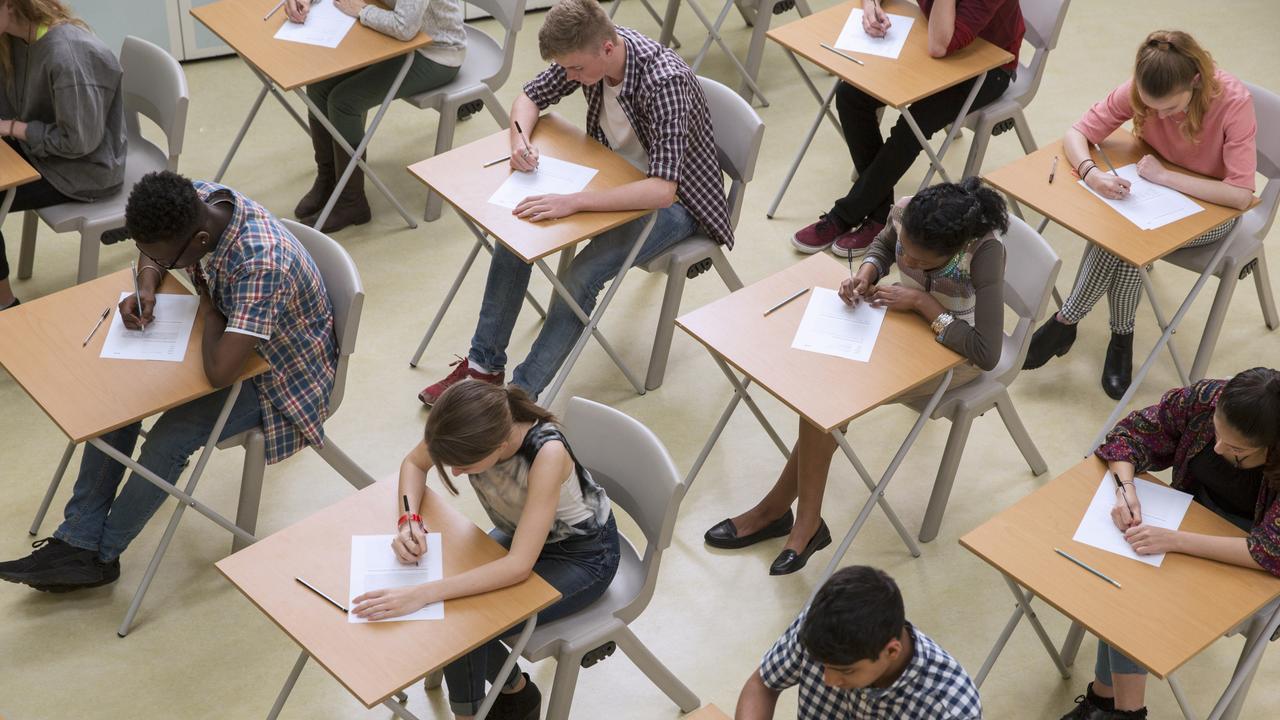QCE 2024: How to navigate Queensland’s Year 12 exams
Thousands of students have entered the final hurdle of their secondary schooling – external exams. We have compiled a complete guide to navigating the exam block.

When dining rooms and bedrooms have transformed into study halls, coffee has become a staple food, and sleep has completely gone out the window, you know the year 12 exam block is just around the corner.
Monday, October 21 marks the first day of the mammoth exam period, with thousands of students preparing to finish up their secondary schooling.
But with the end so near, stress and anxiety are at their highest – and burnout is likely to impact exam performance.
We have compiled a complete guide to navigating the exam block, complete with tips and advice for both parents and students.
The QCE system
QCE students results for general and extension subjects are based on their achievements in three internal assessments and one external assessment.
Internal assessment is developed and marked by schools and will count for the majority of subjects and courses.
As part of Queensland Curriculum and Assessment Authority general subjects, students will sit external assessments at the end of Year 12.

External assessment details
In General mathematics and Science subjects, a student’s external assessment result contributes 50 per cent to their final subject result.
In all other General subjects, it contributes 25 per cent.
The external assessment result does not scale the internal assessment result.
Internal assessment details
Internal assessments contribute 75 per cent towards a student’s final subject result, in most subjects. In mathematics and Science subjects, internal assessment generally contributes 50 per cent.
Internal assessment results are not scaled by external assessment results when calculating a student’s final subject result.
What is the difference between QCE and QCIA?
The Queensland Certificate of Education (QCE) is Queensland’s senior secondary schooling qualification. It is internationally recognised and provides evidence of senior schooling achievements.
Meanwhile, the Queensland Certificate of Individual Achievement (QCIA) recognises and reports the achievements of students whose learning is part of an individual learning program.
It is an official record that students have completed at least 12 years of education and provides students with a summary of their skills and knowledge to present to employers and training providers.
What equipment can students bring to external assessments?
Students are encouraged to bring equipment in a clear container or zip-lock bag.
Black or blue pens, pencils, erasers, sharpeners, highlighters, water in a clear bottle and an asthma inhaler are all approved items.
Mobile phones, smart watches, dictionaries, erasable pens, blank paper, notes, written material, tissues and other electronic devices are all banned.

Key dates
The external exam block runs for more than three weeks from Monday, October 21 to Tuesday, November 15.
The first day of exams starts off with English, English as an additional language and visual arts.
Exam block will round off with the agricultural science, Italian, and earth and environmental science papers.
Students must attend all the components of the external exams to receive a result.
Final subject results and Senior Education Profiles (SEPs) for 2024 Year 12 graduates will be available from 9.00am on Wednesday 11 December 2024.
Experts’ top tips for parents and students
St Margaret’s Anglican Girls School dean of academics Caitlin McCluskey said maintaining a balanced approach to study was crucial.
“Getting plenty of sleep, eating well, drinking plenty of water and exercising are just as important as the study itself,” Ms McCluskey said.
“Avoid focusing only on the next exam – mix up your study sessions across all of your subjects to keep your brain working well and don’t study for hours without taking a break.
“When taking a break, make it a really beneficial break. It should be away from screens and ideally involve some form of movement.”
Ms McCluskey said providing a space free of noise and distraction at home to help reduce stress levels.
“Students may either become very heightened and start to feel anxious about upcoming exams,” she said.
“Alternatively, they may lose motivation and stop working completely. In both instances, taking a good break that involves exercise and fresh air can help to reboot.
“Keeping plenty of fresh food available so they can easily grab a healthy snack in their breaks.
“Sit down for dinner together and try to discuss things other than the exams to give them a break.”
Australian Christian College Moreton deputy principal Suzanne Fraser offered her tips for navigating burnout and stress during peak exam block.
“A marathon is about finishing strong, so remind your child that their effort matters more than the results so encourage their effort, be calm and positive and cheer them on,” Ms Fraser recommended.
“Let them know that it’s normal to have times of feeling nervous and stressed but you’re them to help them through.
“Help your child maintain balance where study is the focus but they can include time for relaxation and leisure to recharge but parents/caregivers need to ensure they give some space during this time, so they don’t add additional expectations and duties to them during their study time.”
Ms Fraser said being available for support and encouraging open communication at home was vital for keeping stress and burnout at bay.
“Foster an environment where your child feels comfortable sharing their stress or concerns. This support can help them navigate the pressures of exams more effectively and get them the help they may need early,” she said.
“Offer to quiz the student on material if they want or help clarify anything they’re confused about but avoid adding pressure.
“Just continue to check in with your child to see how they are going and ask if they feel they want any help with anything. Just having your support and knowing you are there for them is valuable.”
Burnout warning signs
Emotional changes
Keep an eye out for increased anxiety, irritability or mood swings as this can indicate that a student is struggling under pressure.
Physical changes
Complaints of fatigue, headaches, changes in appetite, trouble sleeping or oversleeping can all be signs of stress.
Withdrawal from activities
If a student stops engaging in hobbies or social interactions they once enjoyed, it may signal burnout. Encourage them to maintain connections with friends and family for support.
Feelings of hopelessness
Expressing or displaying feelings of being overwhelmed, helpless, or lacking control over their situation is a sign that they need support.
Procrastination or Avoidance
Delaying tasks or avoiding schoolwork altogether, leading to more stress is a sign we often see in struggling students. They can’t get motivated to start and once they do start, their ability to concentrate is a struggle.
Originally published as QCE 2024: How to navigate Queensland’s Year 12 exams



